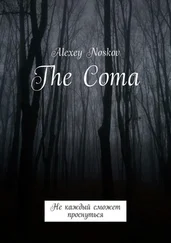Jo Nesbo - The Redbreast
Здесь есть возможность читать онлайн «Jo Nesbo - The Redbreast» весь текст электронной книги совершенно бесплатно (целиком полную версию без сокращений). В некоторых случаях можно слушать аудио, скачать через торрент в формате fb2 и присутствует краткое содержание. Жанр: Триллер, на английском языке. Описание произведения, (предисловие) а так же отзывы посетителей доступны на портале библиотеки ЛибКат.
- Название:The Redbreast
- Автор:
- Жанр:
- Год:неизвестен
- ISBN:нет данных
- Рейтинг книги:4 / 5. Голосов: 1
-
Избранное:Добавить в избранное
- Отзывы:
-
Ваша оценка:
- 80
- 1
- 2
- 3
- 4
- 5
The Redbreast: краткое содержание, описание и аннотация
Предлагаем к чтению аннотацию, описание, краткое содержание или предисловие (зависит от того, что написал сам автор книги «The Redbreast»). Если вы не нашли необходимую информацию о книге — напишите в комментариях, мы постараемся отыскать её.
The Redbreast — читать онлайн бесплатно полную книгу (весь текст) целиком
Ниже представлен текст книги, разбитый по страницам. Система сохранения места последней прочитанной страницы, позволяет с удобством читать онлайн бесплатно книгу «The Redbreast», без необходимости каждый раз заново искать на чём Вы остановились. Поставьте закладку, и сможете в любой момент перейти на страницу, на которой закончили чтение.
Интервал:
Закладка:
'Of course it's spread,' the old man said. 'Isn't that what cancer cells do? Spread?'
'Ha, ha. Yes, it is.' Dr Buer brushed an invisible speck of dust off the desk.
'Cancer is like us,' the old man said. 'It just does what it has to do.'
'Yes,' Dr Buer said. He looked relaxed in a forced way, in his slumped sitting position.
'Like you, doctor. You just do what you have to do.'
'You're so right, so right.' Dr Buer smiled and put on his glasses. 'We're still considering chemotherapy. It would weaken you, but it could prolong… um…'
'My life?'
'Yes.'
'How long have I got left without chemo?'
Buer's Adam's apple bobbed up and down. 'A little less than we had first assumed.’
‘Meaning?'
'Meaning that the cancer has spread from the liver via the blood stream to -'
'For Christ's sake, will you just tell me how long.' Dr Buer gaped blankly.
'You hate this job, don't you?' the old man said. 'I beg your pardon?’
‘Nothing. A date, please.’
‘It's impossible to -'
Dr Buer jumped in his chair as the old man's fist hit the desktop so hard that the telephone receiver leapt off the cradle. He opened his mouth to say something, but stopped when he saw the old man's quivering forefinger. Then he sighed, took off his glasses and ran a tired hand over his face.
'This summer. June, perhaps earlier. August at the latest.’
‘Great,' the old man said. 'That'll do fine. Pain?’
‘Can come at any time. You'll be given medicine.’
‘Will I be able to function?’
‘Hard to say. Depends on the pain.'
'I must have medicine that enables me to function. It's important. Do you understand?’
‘All painkillers -'
I can take a lot of pain. I simply need something to keep me conscious so that I can think and act rationally.'
Happy Christmas. That was the last thing Dr Buer had said. The old man stood on the steps. At first he hadn't understood why the city was so full of people, but once he had been reminded of the imminent religious festival he saw the panic in the eyes of people dashing along the pavements in search of last-minute Christmas presents. Some shoppers had gathered round a pop group playing in Egerstorget. A man wearing a Salvation Army uniform was going round with a collection box. A junkie stamped his feet in the snow, his eyes flickering like stearin candles about to go out. Two teenage girls, arm in arm, passed him, rosy-cheeked and bursting with stories to tell about boys and expectations of their lives to come. And the candles. There were candles in every damned window. He raised his face to the Oslo sky; a warm, golden dome of reflected light from the city. My God, how he longed for her. Next Christmas, he thought. Next Christmas we will celebrate together, my darling.
Part Three
23
Rudolf II Hospital, Vienna. 7 June 1944.
Helena Lang walked with quick steps as she pushed a trolley towards Ward 4. The windows were open and she breathed in, filling her lungs and head with the fresh smell of newly mown grass. No smell of death and destruction today. It was a year since Vienna had been bombed for the first time. In recent weeks, when the weather had been clear, they had been bombed every single night. Even though the Rudolf II Hospital was several kilometres away from the centre, raised aloft from the war in the green Viennese woods, the stench of smoke from the fires in the city had smothered the scents of summer.
Helena swung round a corner and smiled at Dr Brockhard, who appeared to want to stop and talk, then hurried on. Brockhard, with those rigid staring eyes of his behind glasses, always made her nervous and uncomfortable when they came face to face. Now and then she had the impression that these meetings in the corridor were not accidental. Her mother would probably have had respiratory problems if she had seen the way in which Helena avoided the promising young doctor, especially as Brockhard came from a particularly distinguished Viennese family. However, Helena liked neither Brockhard nor his family, nor her mother's attempts to use her as a ticket back into the upper echelons of society. Her mother blamed the war for what had happened. It was to blame for Helena's father, Henrik Lang, losing his Jewish lenders so abruptly and thus not being able to pay his creditors as arranged. The financial crisis had resulted in him having to improvise and he had made his Jewish bankers transfer their bond holdings, which the Austrian state had confiscated, to Lang. And now Henrik Lang was in prison for having conspired with Jewish enemies of the state.
Unlike her mother, Helena missed her father more than she missed the social status her family had enjoyed. She did not miss, for example, the banquets, the adolescent, superficial conversations and the continual attempts to marry her off to one of the spoiled rich boys.
She looked at her wristwatch and scurried along. A small bird had obviously flown in through one of the open windows and now it was calmly sitting on one of the globe lamps hanging from the high ceiling and singing. Some days Helena found it incomprehensible that a war was raging outside. Perhaps it was because the forest, the tight rows of spruce trees, closed out all the things they didn't want to see. If you went into the wards, however, you soon knew that the peace was illusory. The wounded soldiers with their mutilated bodies and their battered psyches brought the war home to them. To begin with, she had listened to their stories, practically convinced that with her strength of mind and her faith she could help to lead them out of their misery. Yet they all seemed to tell more of the same nightmare story about how much man can and has to endure on earth, and about the degradation involved in simply wanting to live. Only the dead escape unscathed. So Helena stopped listening. She pretended she was listening as she changed bandages, checked temperatures and gave them medicine or food. And when they were asleep she tried not to look at them, as even then their faces continued to tell their stories. She could read suffering in the pale, boyish faces, brutality in the hardened, closed faces and a longing for death in the pain-contorted features of one man who had just found out that his foot would have to be amputated.
Nevertheless, she walked in today with quick, light steps. Perhaps it was because it was summer, perhaps it was because a doctor had told her how beautiful she was this morning, or perhaps it was because of the Norwegian patient in Ward 4 who would soon say 'Guten Morgen' in his funny German. Then he would eat breakfast while giving her lingering looks as she went from bed to bed, serving the other patients, saying a few encouraging words to each one. For every fifth or sixth bed she attended to she cast a glance back at him and, if he smiled at her, she would quickly return the smile and continue as if nothing had happened. Nothing. And yet it was everything. It was the thought of these small moments that got her through the days now; that allowed her to laugh when the badly burned Kapitan Hadler in the bed by the door jokingly asked if they would soon send him his genitals back from the Eastern Front.
She pushed open the door to Ward 4. The sunlight flooding into the room made everything white-the walls, the ceiling, the sheets-shine. That's what it must be like when you enter paradise, she thought.
'Guten Morgen, Helena.'
She smiled at him. He was sitting in a chair beside the bed and reading a book.
'Did you sleep well, Uriah?' she asked him cheerfully.
'Like a bear,' he said.
'Bear?'
'Yes. In… what do you call it in German when they sleep all winter?’
‘Ah, hibernation.’
‘Yes, hibernation.'
Читать дальшеИнтервал:
Закладка:
Похожие книги на «The Redbreast»
Представляем Вашему вниманию похожие книги на «The Redbreast» списком для выбора. Мы отобрали схожую по названию и смыслу литературу в надежде предоставить читателям больше вариантов отыскать новые, интересные, ещё непрочитанные произведения.
Обсуждение, отзывы о книге «The Redbreast» и просто собственные мнения читателей. Оставьте ваши комментарии, напишите, что Вы думаете о произведении, его смысле или главных героях. Укажите что конкретно понравилось, а что нет, и почему Вы так считаете.












